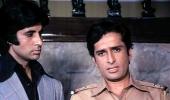'For an introduction to his career-spanning genius, watch just five of his movies: Anand, Saudagar, Abhiman, Black and Pink,' notes Kalyan Singhal, McCurdy Professor of Business at the University of Baltimore.
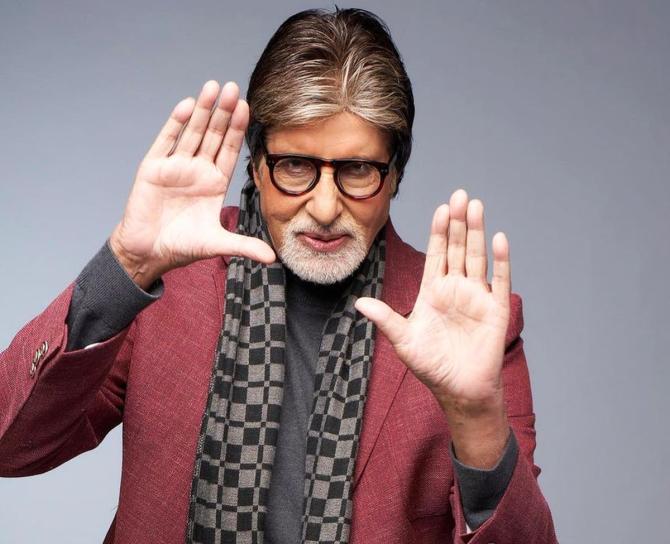
Amitabh Bachchan's 80th birthday on October 11th is an opportunity for us to pay tribute to him and to his father Harivansh Rai Bachchan (1907-2003), who was a prolific poet and writer.
In his late 20s, Harivanshji published his poetic trilogy, Madhushala, Madhubala and Madhukalash and was quickly recognised as a major figure on the Hindi literary scene.
This masterpiece was inspired in part by polymath Omar Khayyam's Rubaiyat, which celebrates the life and urges accepting people as they are created by nature.
Rabindranath Tagore's poem Farewell from Heaven, which speaks of the supremacy of this world over Heaven, was another strong influence.
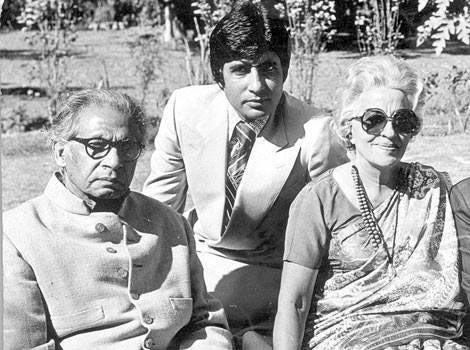
The trilogy celebrates life, focusing on the importance of sharing with and caring for those who join us on life's journey, rejecting that which divides us, and accepting the supremacy of this life and this world.
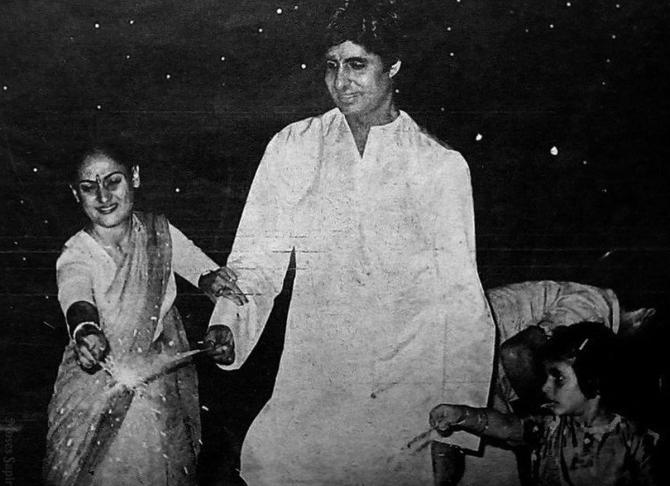
Harivanshji uses Madhu or wine, as a metaphor for the blessings and pleasures of life, while Madhubala or Saki (the female wine server) and the priye (beloved) represent companions on life's journey.
The Madhushala, or tavern, is where people gather in an unconditional commitment to share and care, regardless of individual characteristics or affiliations.
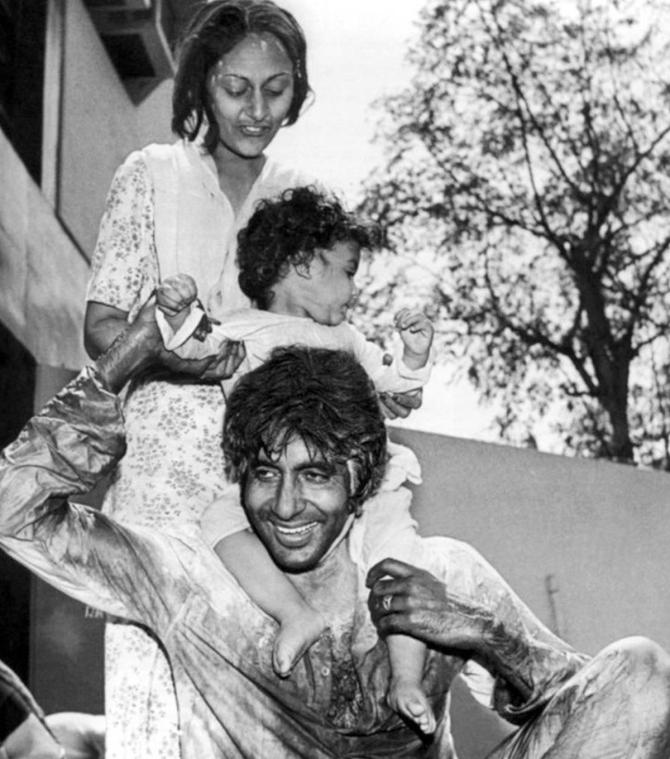
Of the uncertain afterlife, Harivanshji wrote. 'Is paar priye tum ho, madhu hai; uus paar naa jane kya hoga (On this shore, that is, in this life, I have you my beloved and have wine but do not know what is on the other shore, that is, in the world afterlife).'
Echoing Khayyam and Tagore, he urges us to cherish this world without thinking of a Heaven that may exist only in our imagination.
In order to fully celebrate life, Harivanshji says we must not let our losses play a decisive role in our lives.
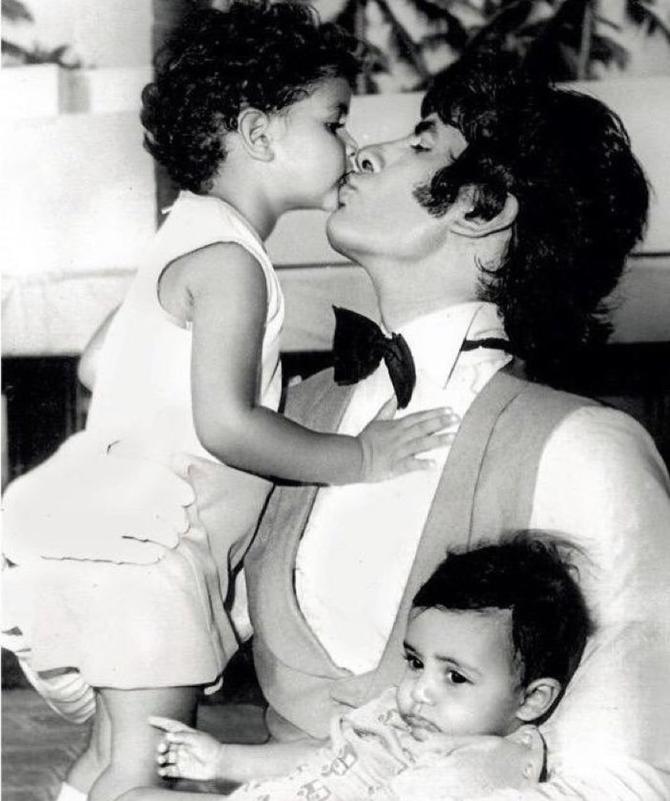
In one poem, Jo beet gai so baat gayee, he reminds us that the sky does not grieve eternally over its continual loss of stars. Life must go on.
His words evoke Aham Brahmasmi (I am the ultimate God), a scriptural phrase describing the central and paramount place of small, individual humans in their own lives and in the boundless universe.
In one poem, Harvanshji decried hatred in society, writing that our animosity has even divided the animals, the cow becoming Hindu and the goat, Muslim.
He points out that we see only Hindus in the temples and only Muslims in the mosques, but only in the tavern do we see humans.
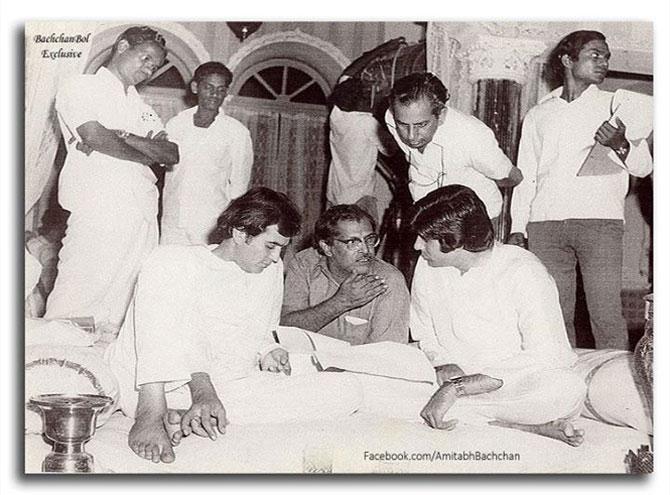
Harivanshji's views about death were in keeping with nature and with India's culture.
In 1948, some people wanted to preserve Mahatma Gandhi's body.
Harivanshji thundered in opposition: 'Ye kaun kehta hai ki Bapuji ki kaaya kar sheeshe me taboodh búnd kar li jaaye; Hum agar chahte Raam, Krishna, Gautam, Ashok, ya Akbar ki laash nahi rakh sakte thé? (Who says that we should keep Bapuji's body locked up in a glass box; couldn't we, if we wanted, have preserved the bodies of Raam, Krishna, Gautam Buddha, Ashok, or Akbar?)'
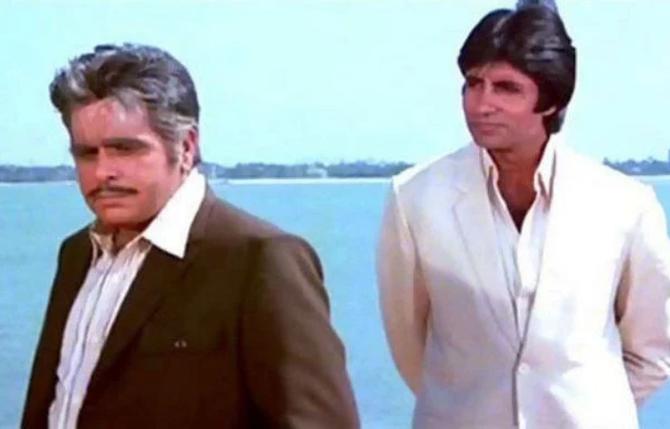
Later in life, Harivanshji wrote a touching multi-volume autobiography in which he revealed his life, warts and all.
Many autobiographies, perhaps understandably, omit deeply personal or embarrassing events. But Harivanshji felt it was critical to present his imperfect humanity, revealing his strengths and weaknesses, his triumphs and heartbreaks, his successes and failures.
Perhaps most poignant is his description of life with his first wife Shyama, and of her death ten years after they were married.
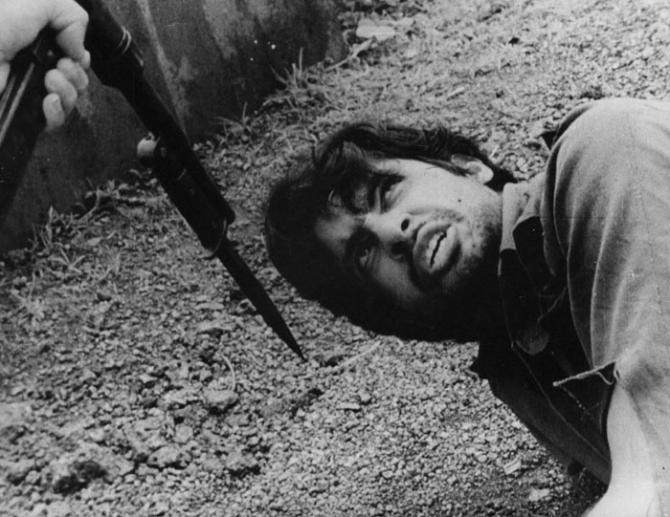
Harivanshji understood that the meanings of words depended on their context.
He told his students that in college they would learn the literal meanings of words, but that they would understand their true meanings only after they had been 'soaked' in life's experiences.
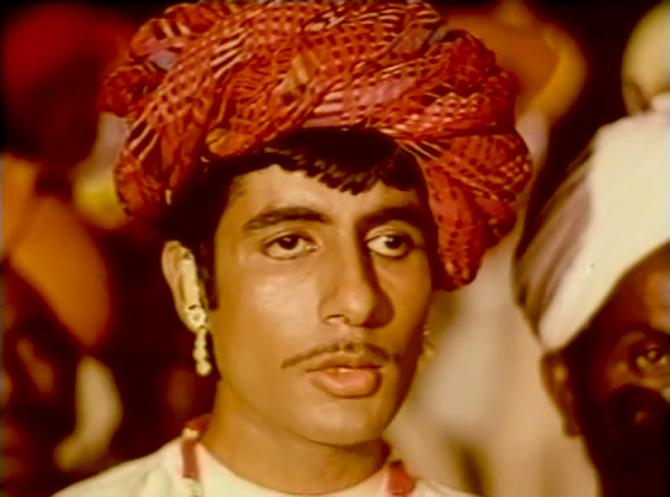
Harivanshji's elder son Amitabh Bachchan entered the film world in 1969. He is as great a movie actor as any the world has seen.
For an introduction to his career-spanning genius, watch just five of his movies: Anand (1971), Saudagar (1973), Abhiman (1973), Black (2005) and Pink (2016).
All have powerful stories and talented co-stars. Amitabh's acting is superb in the first three, and in the latter two it soars.
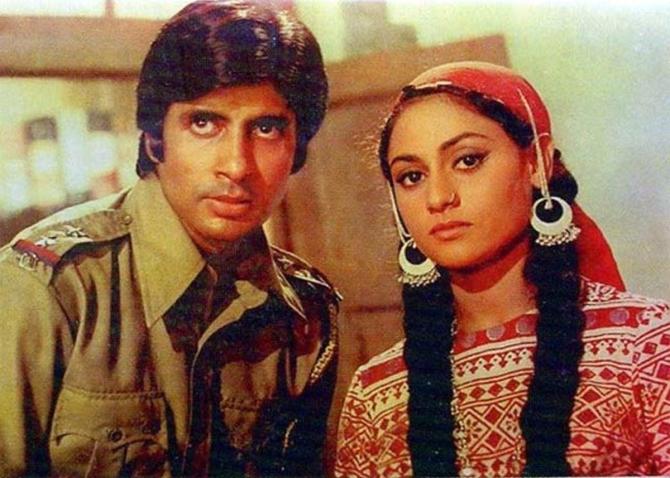
Pink examines gender equality in the context of attempted rape.
Amitabh plays a retired lawyer who agrees to represent the assaulted woman.
The movie makes its most powerful argument for gender equality when Amitabh's character, in a voice that is soft and pained, but also powerful, tell the judge,
'No! No is not a word but a sentence in itself. It does not need clarification, explanation, logic, or commentary. The woman may be someone familiar, friend, girlfriend, a sex worker, or your own wife. No means no. When someone says no, stop.'
This speech should become a guiding light as India's Supreme Court debates the legality, or indeed existence, of marital rape.
It makes clear that rape is a heinous violent crime and bears no resemblance to an intimate consensual relationship.
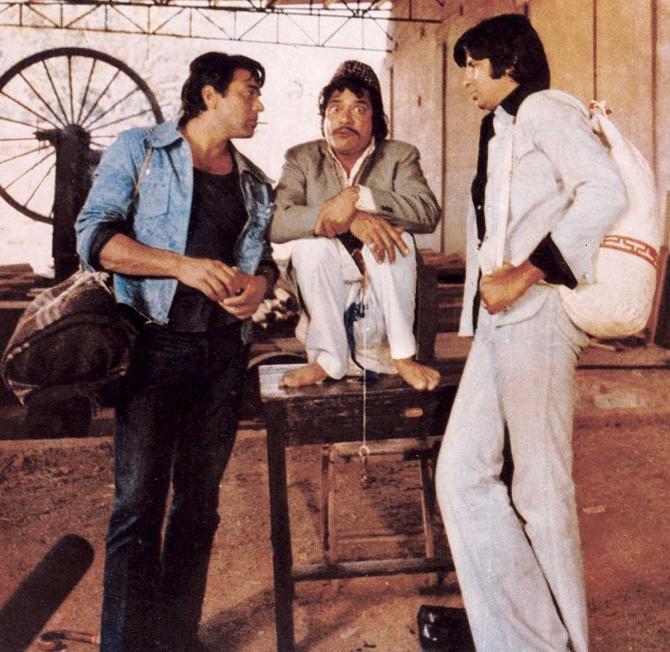
Amitabh inherited a strong work ethic from his father, who used to go to kavi sammelans (poetry recitation gatherings), coming home after midnight.
'Why so much hard work?' Amitabh once asked. His father explained that it was to supplement his professor's income to support the family.
In an industry where big stars often come to work late, wasting everyone else's time and the producer's money, producers and directors praise Amitabh for being always punctual.
Like his father, he sometimes works extra long hours and comes home after midnight.
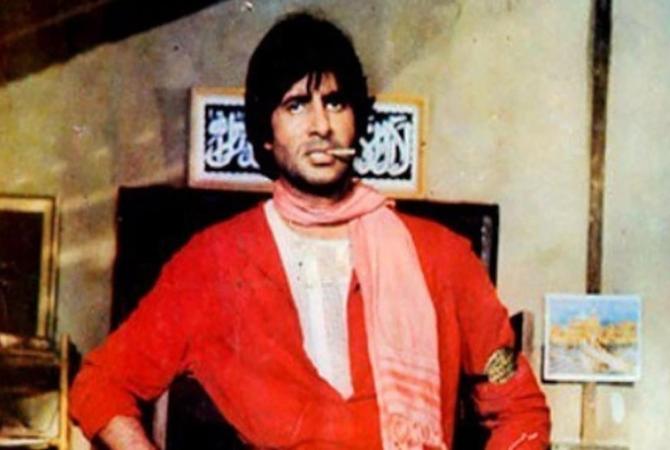
When Amitabh was at Sherwood College, a boarding school in Nainital, he fell ill and could not participate in a play.
His parents paid him a visit and, while there, explained that disappointments could later become advantages.
This advice seems to have helped Amitabh to bounce back from the three major disasters of his life.
While filming a fight scene in 1982, he had a near-fatal accident and spent months in hospital in critical condition, sometimes near death.
Yet, despite some permanent damage, he recovered and continued to live a vigorous life.
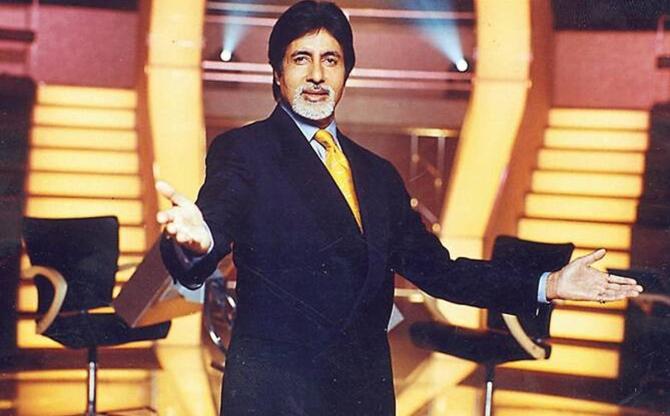
In 1984, he entered Parliament to helpchildhood friend Rajiv Gandhi, then India's prime minister.
He soon found that politics was a cesspool and quickly retreated, returning to the film career he loved.
Finally, when his newly founded business, the Amitabh Bachchan Corporation Limited, teetered near bankruptcy, he returned to his movie career with new determination, filming several box office hits.
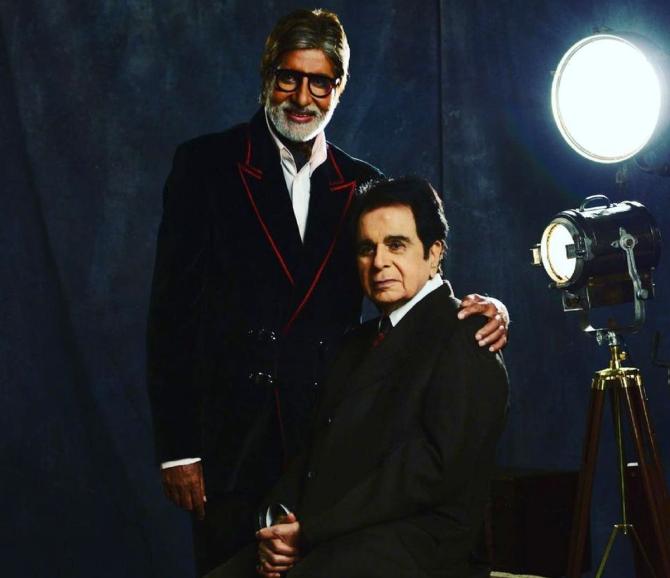
Field Marshal Sam Manekshaw once said that Sherwood College had produced two famous alumni, himself and Amitabh.
Both also had near-death experiences during which they were not expected to live.
In 1942, Manekshaw was badly injured in World War II. Both recovered, in part by a strong will, but the similarities end there.
After he recovered, Manekshaw's doctors told him that if ever drank alcohol again, he would certainly die.
He lived to be 94 and drank almost every day. Amitabh, on the other hand, has maintained strict discipline in his diet and lifestyle.
When he lived for a time in New York City, he would order simple dishes such as Jeera-Aloo (potato cooked with cumin) from a nearby Indian restaurant.
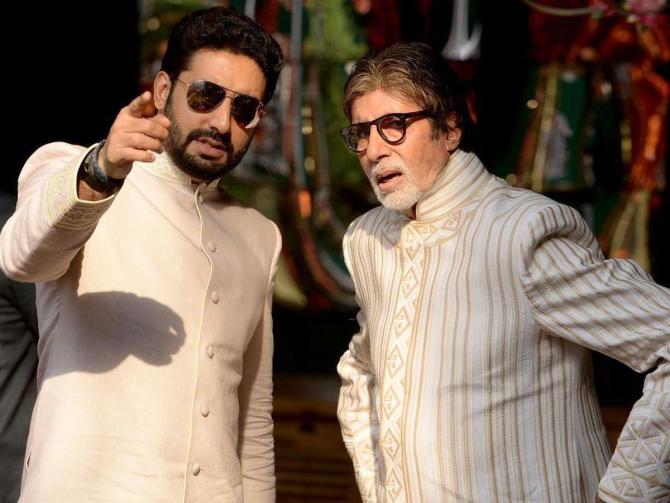
Amitabh is very much a family man and, despite his vast network of friends and colleagues and his occasional pronouncements on public issues, he is a very private man.
He loves his craft and works tirelessly, becoming better and better at what he does.
His best may well be yet to come. I look forward to that day and join his more than one billion fans in wishing him a Happy Birthday and many happy returns!
Copyright, Kalyan Singhal.
Kalyan Singhal is the McCurdy Professor of Business at the University of Baltimore.
Since 1992, he has edited Production and Operations Management, one of the top 20 business journals on the BusinessWeek list.
He recently founded Management and Business Review, a journal for executives supported by leading business schools.
Ksinghal@ubalt.edu
Any publication in any country is free to publish this article after informing the author via e-mail.
Feature Presentation: Rajesh Alva/Rediff.com



